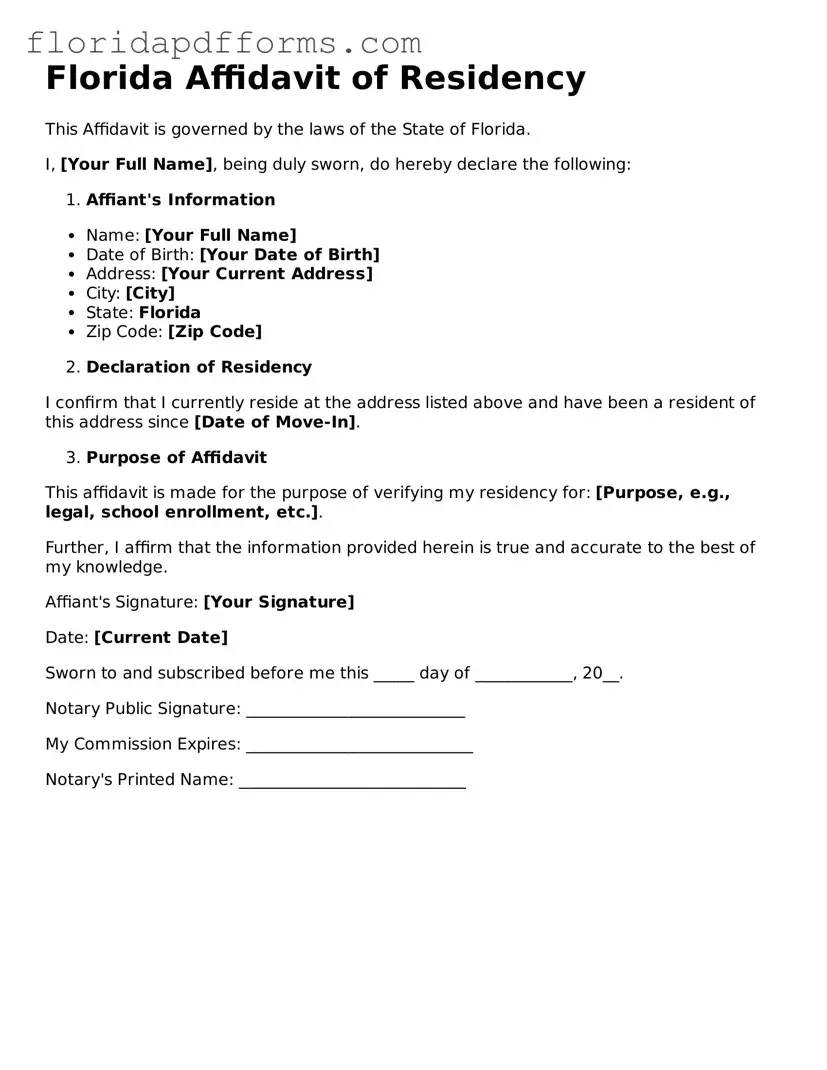Official Affidavit of Residency Template for Florida
The Florida Affidavit of Residency form is a legal document used to verify an individual's residence within the state of Florida. This form is often required for various purposes, such as enrolling in school or obtaining certain benefits. Understanding how to properly complete this form can help ensure that you meet the necessary residency requirements.
Ready to fill out the Florida Affidavit of Residency form? Click the button below to get started!
Modify Affidavit of Residency Now

Official Affidavit of Residency Template for Florida
Modify Affidavit of Residency Now

Modify Affidavit of Residency Now
or
⇓ Affidavit of Residency File
Don’t stop halfway through your form
Finish your Affidavit of Residency online with quick edits and instant download.